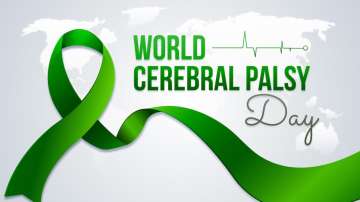Cerebral palsy is a common neurological problem seen in children that affects movement, muscle control, and coordination. It results from damage to the developing brain before birth, during childbirth or in early life stages. Despite being a physical disability, it does not impact the intelligence or cognitive abilities of those affected. The exact causes of cerebral palsy remain unclear; however, potential factors identified include brain damage occurring before, during, or shortly after childbirth due to complications like infections or lack of oxygen supply to the baby's brain. Other conditions such as premature birth or low birth weight have also been associated with an increased risk of developing cerebral palsy. Moreover, some specific gene mutations may heighten susceptibility to this condition. It is important to note that most cases do not have a hereditary component and are instead influenced by non-genetic factors. To observe World Cerebral Palsy Day 2023, Dr Pankaj Agarwal, Senior Consultant Neurologist and Head of the Department of Neurology, Global Hospitals Parel Mumbai, has explained why it is important to understand the diverse causes of cerebral palsy that hold great significance for timely diagnosis as well as devising preventive measures for improving the quality of life of children.
Symptoms of Cerebral Palsy
Some of the symptoms include ataxia, which is difficulty with muscle coordination. This can cause unsteady movements, clumsiness, and an awkward gait. Cerebral palsy can also lead to muscle stiffness or rigidity, making it hard to control movements. Another symptom is spasticity, which is increased muscle tone or tightness that affects the limbs and makes smooth movements challenging. It can result in involuntary muscle contractions or spasms that make certain tasks difficult. Speech difficulties are common as well, with slurred speech or difficulty being understood due to trouble controlling the necessary muscles for speech production. It's important to remember that each person's experience is unique and influenced by factors like age of onset and extent of brain damage during the early days.
Diagnosis Options
Diagnosis options for identifying brain structure abnormalities and injuries include MRI or CT scans, as well as genetic testing and metabolic screening to rule out other underlying conditions with similar symptoms.
Treatments for Cerebral Palsy
In terms of treatment, assistive technology such as special keyboards, mobile apps, and computer-based communication systems enable individuals with limited physical abilities to achieve greater independence in their daily activities. Additionally, robotic therapy is effective in enhancing muscle strength and motor skills. Physical therapy and rehabilitation are also integral components of cerebral palsy treatment.
